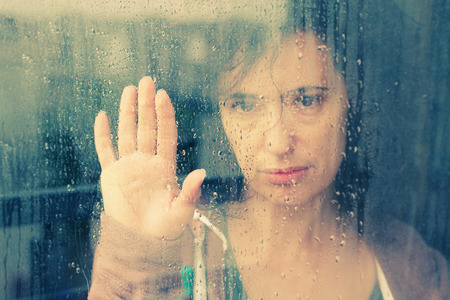Many people wonder if they’re really depressed. Often times they think their mood is attributed to “just life stuff”. You know, work-stress, marital difficulties, a few too many beers. It can be difficult to recognize when it’s more than that. People may be scared of the diagnosis, the meaning behind the word depression, the implications. Depression is actually quite common, and with the right help, very treatable. There are different levels of depression. One may think they have to be incapacitated, suicidal or totally hopeless to really be depressed. This is not the case. There are several indicators of depression and whether you experience three or ten symptoms, it really doesn’t matter. Long story short, if you feel sad, you can get help and you can get better.
Symptoms of Depression
So…Are you depressed? The symptoms of depression may surprise you…or not. Symptoms of depression tend to look like this:
Feelings of hopelessness
Feelings of guilt, worthlessness or shame
Irritability
No longer enjoying what you used to
No longer interested in social engagement
Difficulty concentrating, remembering details, making decisions
Persistent aches or pains, headaches or stomach aches
Loss of appetite or overeating
Loss of sex drive
Insomnia or sleeping too much
Persistent sad or angry feelings
Thoughts of suicide
Recognizing the symptoms of depression is often the biggest step you can take towards recovery.  Something doesn’t feel right and you know it, but you aren’t quite sure what to do about it. Dealing with depression can be difficult and participating in counseling can help. You don’t have to be a total mess to seek out a therapist! Therapy can help you identify what’s happening in the present moment, preventing you from feeling worse down the road. Maybe it is just some family discord, your tyrant of a boss or some serious boredom. Whatever the concern, talking to a professional certainly can’t hurt.
Something doesn’t feel right and you know it, but you aren’t quite sure what to do about it. Dealing with depression can be difficult and participating in counseling can help. You don’t have to be a total mess to seek out a therapist! Therapy can help you identify what’s happening in the present moment, preventing you from feeling worse down the road. Maybe it is just some family discord, your tyrant of a boss or some serious boredom. Whatever the concern, talking to a professional certainly can’t hurt.
What happens in therapy?
In a nutshell, counseling can help you identify destructive thoughts that get you down and help you understand where those thoughts come from-thus teaching you how to cope.
Therapy for depression often involves examining how the interaction among thoughts, feelings and behavior impacts your well being, then helps change the interaction to produce greater life satisfaction. On a much bigger and philosophical scale-you can begin to develop a new relationship with pain and suffering and reach beyond your pain, finding a larger sense of purpose. The therapeutic process can help you learn how to create self -compassion and mindfulness skills to help get you through the tough stuff. On a less clinical note, it can feel really good to just talk to someone. Someone who is not your friend or family member. You may be surprised what comes out-in a good way. It can feel like a ton of bricks off your chest. It can also feel really painful. That happens too. Great thing is, once is out there, out in the open, in can be processed, healed. “A problem aired is a problem shared”. Old saying for the importance of sharing yourself and your problems. Side note- it’s helpful to remember some of the catchy sayings because they tend to hold some truth. Really.
If you’re experiencing symptoms of depression, sadness or overall discontent, it may be in your best interest to talk to someone about it. I cannot stress how normal these feelings are. You are not alone. There is nothing wrong with wanting to feel better, regardless of what’s going on.

Lindsay Melka, LPC
Empathic Counseling and Therapy
If you connected with this post and would like to speak with me please call 720-295-5490 or contact me here.